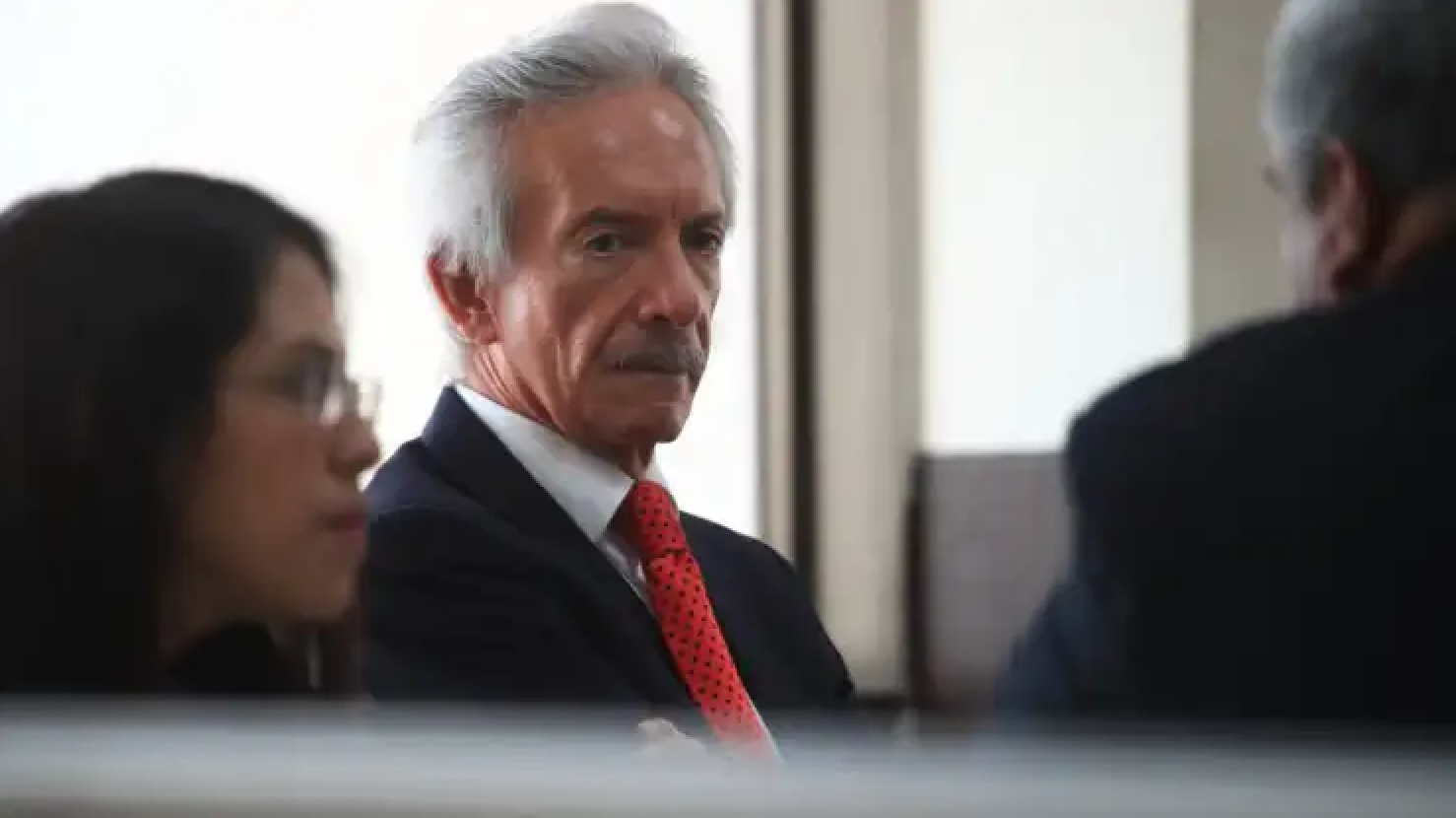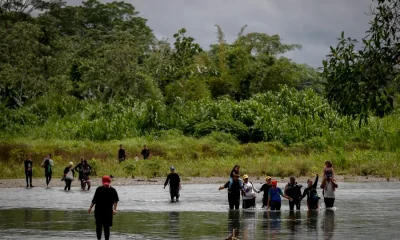International
World Bank: Remittances will drop by a 20%

Remittances sent by migrants to underdeveloped countries will drop by about 20% in 2020 due to the worldwide economic crisis caused by the COVID-19, the World Bank announced this week.
The main causes of the fall in remittances will be the loss of jobs, hours of work and decreased wages, making migrants living in developed countries unable to send money to their families on the same level as they used to.
This reality is a severe blow to families and entire economies in the world. In Latin America, the families of workers who send money from richer countries are already struggling to provide funds at the same rate they had in recent years.
International
Son of journalist José Rubén Zamora condemns father’s return to prison as “illegal”

The son of renowned journalist José Rubén Zamora Marroquín, José Carlos Zamora, has denounced as “illegal” the court order that sent his father back to a Guatemalan prison on March 3, after already spending 819 days behind barsover a highly irregular money laundering case.
“My father’s return to prison was based on an arbitrary and illegal ruling. It is also alarming that the judge who had granted him house arrest received threats,” José Carlos Zamora told EFE in an interview on Saturday.
The 67-year-old journalist was sent back to prison inside the Mariscal Zavala military barracks on March 3, when Judge Erick García upheld a Court of Appeals ruling that overturned the house arrest granted to him in October. Zamora had already spent 819 days in prison over an alleged money laundering case.
His son condemned the situation as “unacceptable”, stating that the judge handling the case “cannot do his job in accordance with the law due to threats against his life.”
International
Miyazaki’s style goes viral with AI but at what cost?

This week, you may have noticed that everything—from historical photos and classic movie scenes to internet memes and recent political moments—has been reimagined on social media as Studio Ghibli-style portraits. The trend quickly went viral thanks to ChatGPT and the latest update of OpenAI’s chatbot, released on Tuesday, March 25.
The newest addition to GPT-4o has allowed users to replicate the distinctive artistic style of the legendary Japanese filmmaker and Studio Ghibli co-founder Hayao Miyazaki (My Neighbor Totoro, Spirited Away). “Today is a great day on the internet,” one user declared while sharing popular memes in Ghibli format.
While the trend has captivated users worldwide, it has also highlighted ethical concerns about AI tools trained on copyrighted creative works—and what this means for the livelihoods of human artists.
Not that this concerns OpenAI, the company behind ChatGPT, which has actively encouraged the “Ghiblification”experiments. Its CEO, Sam Altman, even changed his profile picture on the social media platform X to a Ghibli-style portrait.
Miyazaki, now 84 years old, is known for his hand-drawn animation approach and whimsical storytelling. He has long expressed skepticism about AI’s role in animation. His past remarks on AI-generated animation have resurfaced and gone viral again, particularly when he once said he was “utterly disgusted” by an AI demonstration.
Central America
Nicaragua revokes legal status of 10 more NGOs, bringing total to over 5,600
The Nicaraguan government canceled the legal status of 10 more non-profit organizations on Friday (March 28, 2025), including the Swiss Foundation for Development Cooperation, bringing the total number of non-governmental organizations (NGOs) shut down since December 2018 to over 5,600.
According to the Ministry of the Interior, the Swiss Foundation for Development Cooperation, which had been registered since March 9, 2002, was found to be in non-compliance for failing to report its financial status for 2024 and for having an expired board of directors.
Among the 10 NGOs whose legal status was revoked were religious organizations, educational groups, consumer associations, and aquaculture organizations, all dissolved “voluntarily” or closed under similar reasons.
As of today, more than 5,600 NGOs have been dismantled following the popular protests that erupted in April 2018 in Nicaragua. In most cases, the assets of these organizations have been ordered to be transferred to the state.
-

 International4 days ago
International4 days agoFederal court blocks Trump’s use of Enemy Alien Act for deportations
-

 Central America4 days ago
Central America4 days agoHonduran group in U.S. pushes for voter registration to prevent election fraud
-

 Central America4 days ago
Central America4 days agoKristi Noem in Latin America: Talks with Bukele on expulsions and security policies
-

 International4 days ago
International4 days agoEcuador oil spill worsens as containment dam collapses
-

 Central America3 days ago
Central America3 days agoNicaragua denounces Costa Rica’s position in SICA as aligned with foreign interests
-

 Central America3 days ago
Central America3 days agoNicaragua’s new judicial law consolidates power in Ortega and Murillo’s hands
-

 Central America3 days ago
Central America3 days agoPanama’s president declares Darién gap ‘closed’ amid sharp drop in migrant flow
-

 International3 days ago
International3 days agoMarco Rubio warns Venezuela against military action against Guyana
-

 International23 hours ago
International23 hours agoSon of journalist José Rubén Zamora condemns father’s return to prison as “illegal”
-

 International23 hours ago
International23 hours agoMiyazaki’s style goes viral with AI but at what cost?
-
Central America2 days ago
Nicaragua revokes legal status of 10 more NGOs, bringing total to over 5,600















